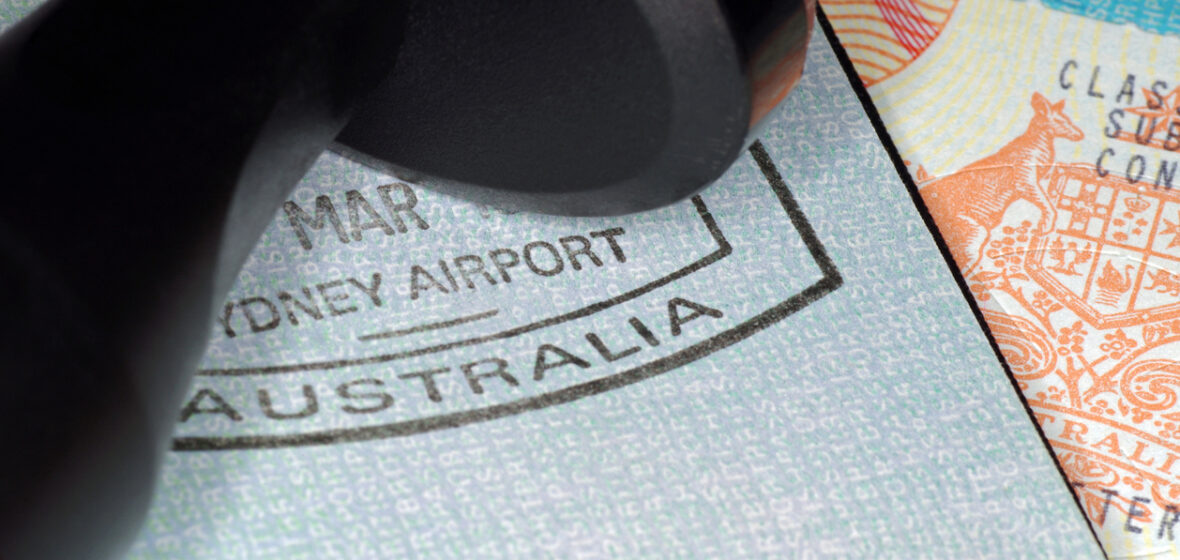Legal practice in NSW is strictly regulated, and there are particular rules that govern how a foreign lawyer may or may not practise foreign law and when a foreign-qualified lawyer may take and use the title “lawyer” and other titles that imply a right to engage in legal practice.
When a person uses certain titles (including lawyer, legal practitioner, solicitor, or counsel), they are presumed to be representing to the general public that they are entitled to engage in legal practice in NSW.[1] This is the case irrespective of whether the title is used in conjunction with a qualifying description, such as “foreign” (e.g., “Foreign Qualified Solicitor” or “Special Counsel – Foreign qualified”).
Without either an Australian Registration Certificate (ARC) or an Australian practising certificate, the use of such titles by a foreign lawyer may involve a breach of the Legal Profession Uniform Law (NSW) (LPUL), even if the person is supervised by an Australian legal practitioner.
Any foreign lawyer who meets the relevant registration requirements (see below) is entitled to an ARC. This may include foreign lawyers who are in the process of qualifying to become an Australian legal practitioner, or who are not eligible for admission for an Australian practising certificate.
All foreign lawyers practising foreign law in NSW are strongly encouraged to apply for an ARC and familiarise themselves with the provisions of the LPUL that apply to the practise of foreign law in NSW.
This resource provides guidance on a foreign lawyer’s entitlement to engage in legal practice in NSW, the titles they may use and discusses the benefits of foreign lawyers obtaining an ARC.
Can I call myself a “lawyer” (or similar) if I am foreign qualified and I don’t hold an ARC?
Holding legal qualifications in a foreign country and being authorised or registered to practise foreign law in a foreign country does not necessarily entitle you to call yourself a “lawyer” in NSW. A foreign lawyer who wishes to take and use the title “lawyer” in NSW must be an Australian-registered foreign lawyer.[2]
‘Australian-registered foreign lawyer’ means a person who has been issued with and holds a current ARC,[3] which is a registration certificate granted to a foreign lawyer under Part 3.4 of LPUL.[4]
‘Foreign lawyer’ is defined in LPUL as an individual who is properly registered or authorised to engage in legal practice in a foreign country by the foreign registration authority for the country.[5]
Can I practise foreign law in NSW if I don’t hold an ARC?
A foreign lawyer who does not hold a current ARC is entitled to practise foreign law in NSW for limited periods of time only[6] – if the period(s) do not, in aggregate, exceed 90 days in any period of 12 months.[7] Further, a foreign lawyer who does not hold an ARC is not entitled to take and use the title “lawyer” in NSW.[8]
If a foreign lawyer intends to maintain an office in NSW for the purpose of practising foreign law or will be a partner, director or other principal of a law practice in NSW, then they must hold an ARC regardless of whether the foreign lawyer will be practising for a period that does not exceed 90 days in any 12-month period.[9]
What ‘legal practice’ can I engage in if I hold an ARC?
As the holder of an ARC, your main entitlement is having the authority to practise foreign law in Australia and, unlike a non-ARC holder, would not be limited by the 90 day period as set out above.
In addition, with an ARC, a foreign lawyer can advise on the effect of an Australian law if it is necessarily incidental to the practice of foreign law and the advice is expressly based on advice given on the Australian law by an Australian legal practitioner who is not an employee of the foreign lawyer.[10]
A foreign lawyer who holds an ARC can also support the legal practice of a lawyer who holds an Australian practising certificate (Australian legal practitioner), however, the Australian legal practitioner is ultimately responsible for the legal work undertaken. For example, an Australian-registered foreign lawyer who is employed by a law practice can draft legal correspondence and court documents concerning Australian law, so long as the documents are settled and approved by a principal or authorised Australian legal practitioner of the law practice. In this instance, the work of a foreign lawyer should be treated no differently to that of a paralegal or a law graduate, and any work undertaken by them must be under the supervision of the law practice principal or authorised Australian legal practitioner.[11] For further guidance on this issue, see our resource ‘What a lawyer can and cannot do at each stage of their career’.
What are the requirements for obtaining an ARC?
To qualify for an ARC, you must meet the definition of “foreign lawyer” under the LPUL, that is, “an individual who is properly registered or authorised to engage in legal practice in a foreign country by the foreign registration authority for the country”, and you must intend to engage in legal practice in Australia within a reasonable time after registration.[12]
The Council of the Law Society must also be satisfied that you are registered or authorised to engage in legal practice in one or more foreign countries with an effective system of legal practice regulation.[13] In considering whether a foreign jurisdiction has an effective system of legal practice regulation, the Law Society will consider information:
- provided by the applicant
- obtained through the Law Society’s own inquiries
- obtained from an interstate regulator, and
- provided by a foreign regulator.
For example, solicitors in England and Wales are required to hold a practising certificate issued by the Solicitors Regulation Authority (SRA) to engage in legal practice. If a solicitor from that jurisdiction applies for an ARC, the Law Society would require evidence of their current practising certificate from the SRA and a certificate of good standing (which is considered valid for 28 days from the date of issue).
How do I apply for an ARC?
To apply for an ARC, a foreign lawyer will need to complete an application for grant of an ARC as an Australian-registered foreign lawyer in NSW and provide, inter alia, evidence of:
- education qualifications
- professional qualifications
- current registration/authorisation to practise law in the foreign jurisdiction, and
- certificate of fitness or good standing from the foreign authority that describes anything done by the foreign lawyer in engaging in legal practice in that foreign country which the foreign authority is aware that may have an adverse effect on the foreign lawyer’s professional standing.
The completed application and supporting documentation must be sent to the Law Society Registry at [email protected] for assessment.
In circumstances where the required supporting documentation does not exist in the home jurisdiction of the foreign lawyer, the foreign lawyer is required to include in their application an explanation and evidence, where possible, as to those circumstances. Any documents not in English must be accompanied by a translation by an accredited translator.
More information
Further information about practising foreign law in NSW is available on the Law Society of NSW website.
Anyone with questions or wanting support and guidance in relation the issues raised in this article is welcome to contact the Law Society’s Professional Support Unit on (02) 9926 0115 or at [email protected].
The Law Society’s Professional Support Unit provides free and confidential information and guidance to the legal profession, including foreign lawyers, to comply with their obligations under the legal profession legislation.




